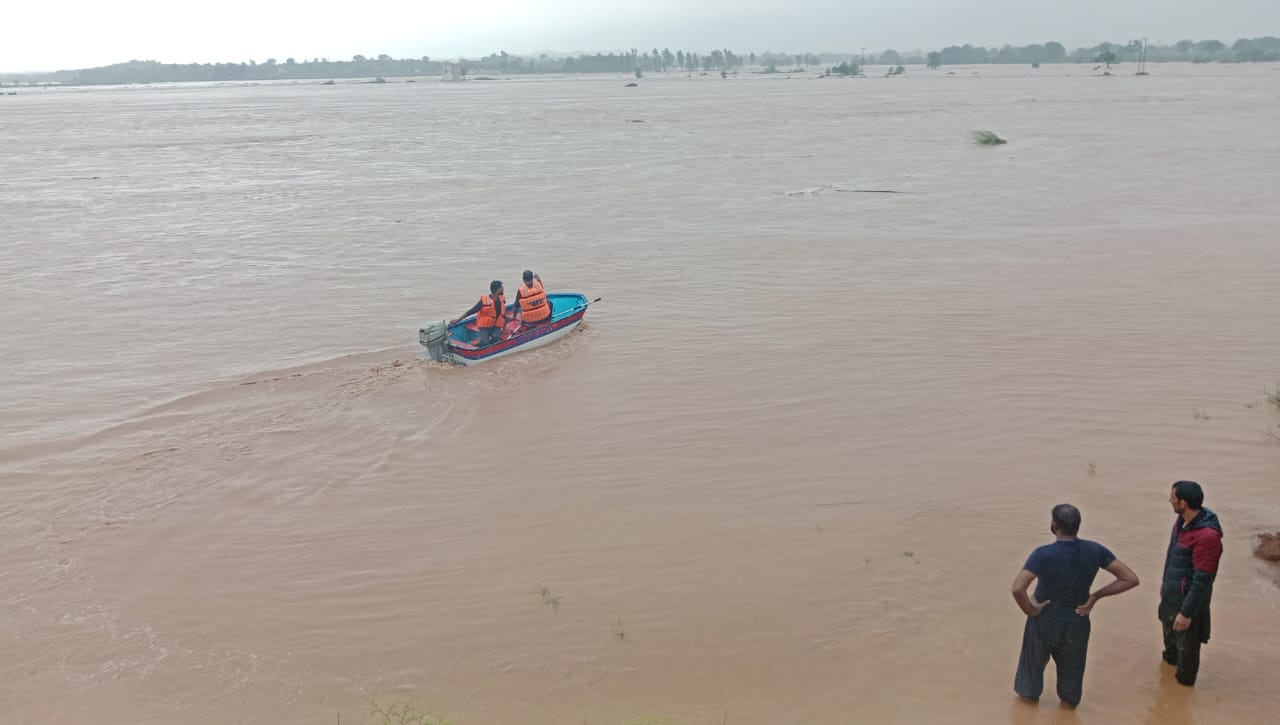What we’re watching: Weekly disaster update, July 21

We know all too well that disaster can strike anytime, anywhere in the world. Some disasters make headlines; others do not. Here at the Center for Disaster Philanthropy (CDP), we monitor the status of disasters worldwide and compile a list of the ones we’re tracking weekly, along with relevant disaster-related media coverage.
Here’s what we’re watching for the week of July 21, 2025.
New or Emerging Disasters
Flooding – South Korea: At least 18 people have died in flooding and landslides triggered by torrential rains in South Korea. Up to 31 inches of rain have fallen in the country’s south-central coast since July 16. The landslides and flooding also devastated farmlands, killed millions of livestock and forced at least 10,000 people to evacuate their homes. The death toll is expected to rise in the coming days.
With a heat wave warning in the south, officials are taking measures to prevent disease outbreaks as floodwaters recede.
Typhoon Wipha – Multiple countries: Typhoon Wipha swept across the Philippines, killing at least 5 people while tens of thousands were evacuated near Manila. Floods, landslides and debris affected over 800,000 people in the Philippines.
Officials in Vietnam near Hanoi braced for about 20 inches of rain, even as the typhoon weakened to a low–pressure event on July 22.
Previous/Ongoing Disasters
Flooding – Pakistan: On July 16 and 17, torrential monsoon rains killed at least 57 people in two days in Pakistan. Most of the deaths were caused by collapsed buildings or electrocution from downed power lines.
Since June, Pakistan’s monsoon season has claimed 180 lives, half of them children. Once the floodwaters recede, a spike in waterborne illnesses, such as malaria and cholera, is a major threat, especially for children. Additionally, the floods have destroyed homes, infrastructure and caused major crop loss for farmers.
Flooding – Texas: The death toll from the recent floods in Kerr County, Texas, has risen to 135, and the number of missing has dropped to 3. The July floods are considered the deadliest inland flooding event since 1976.
Preliminary assessments by AccuWeather indicate the economic losses to be between $18 billion and $22 billion USD.
Complex Humanitarian Emergencies – Horn of Africa
When a country experiences political conflict, climate shocks, famine, economic challenges or other conditions, it may suffer a complex humanitarian emergency (CHE). CDP maintains complete profiles on several CHEs. Every week, we highlight these and other CHEs hoping to build awareness and philanthropic response.
Millions of people in the Horn of Africa lack food, safety, shelter and basic rights. In addition to hunger, displacement and political conflict, this region faces the constant threat of climate events such as persistent drought and flooding.
Key facts:
- The Horn of Africa has been experiencing the worst drought in 70 years, following a prolonged La Nina event that began in 2020. The drought has had devastating economic consequences for families, forcing negative coping mechanisms, like digging for contaminated water and pulling girls out of school to be married as children.
- The Horn of Africa is home to the world’s busiest and most dangerous migration corridor.
- Conflict in Sudan, South Sudan, Ethiopia and Somalia is a major driver of displacement, with 19 million internally displaced persons and 5.7 million refugees, making it one of the world’s largest displacement crises.
- Over 90 million people are in danger of famine across the region, with famine already officially declared in Sudan.
International organizations are warning of the widening gap between the scale of need in this region and the global response.
What We’re Reading
- Climate change is making fire weather worse for the world’s forests – The New York Times
- All praise shade – The Atlantic
- The fight for a human right to healthy climate is heating up – Forbes
A moment of hope… In Central Texas, many residents lost everything in the devastating floods—homes, vehicles and personal belongings. However, a grassroots network of volunteers has mobilized to help flood victims recover lost items by cataloging and sharing found possessions through online directories and Facebook groups. Their efforts offer practical help and emotional relief, as survivors reconnect with cherished mementos amid profound loss.
